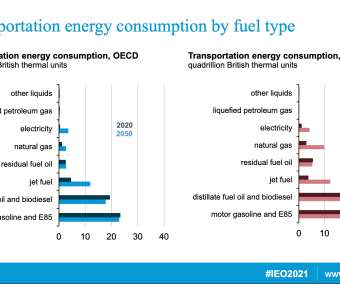EIA projects increases in global energy consumption and emissions through 2050
Green Car Congress
OCTOBER 7, 2021
If current policy and technology trends continue, global energy consumption and energy-related carbon dioxide emissions will increase through 2050 as a result of population and economic growth. Oil and natural gas production will continue to grow, mainly to support increasing energy consumption in developing Asian economies.






















Let's personalize your content